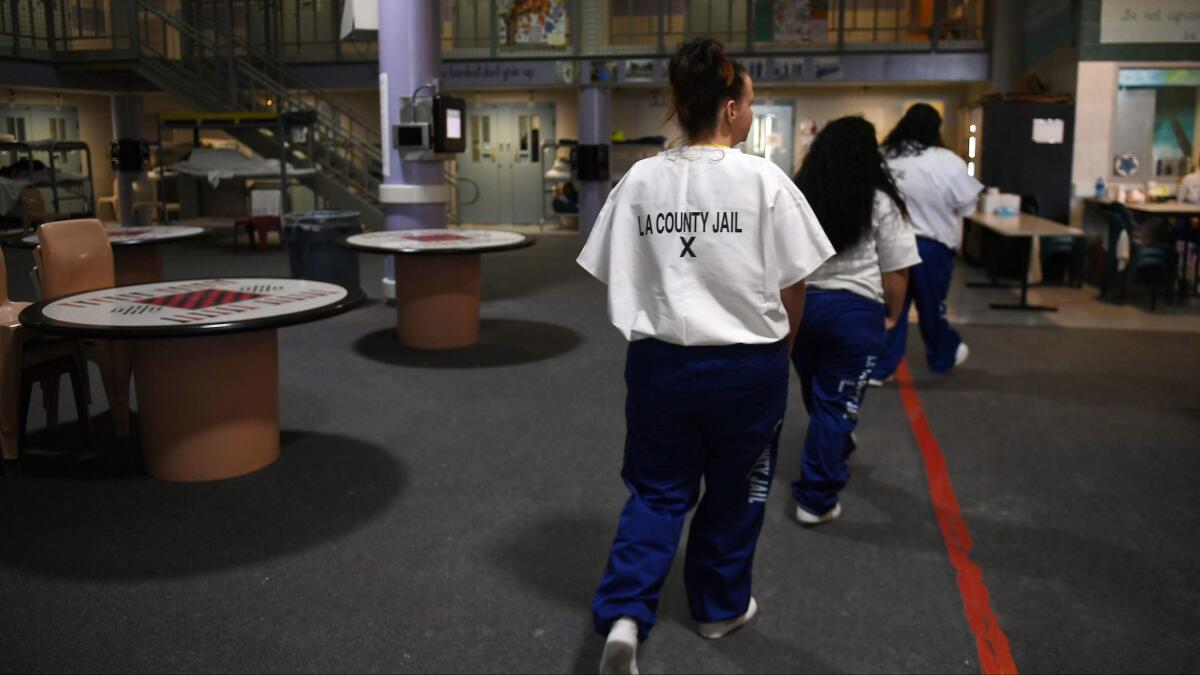Opinion: Don’t forget incarcerated women when talking about sexual assault

To the editor: Amy Wakeland, Los Angeles’ first lady, rightly argues that our sexual abuse problem extends far beyond Hollywood. (“Sexual abuse is everywhere in L.A., and it’s behind our most challenging social problems,” Opinion, Oct. 23)
Indeed, one needs to look no further than local detention facilities to grasp the crippling effects of this violence. Jails and police lockups are filled with women who have endured sexual assault.
In communities nationwide, elected officials are investing in programs to support women upon their release from incarceration. This is a positive step. But reentry initiatives must be matched by a similar commitment to helping women while they are locked up. If we deny rape crisis services to incarcerated women — or, worse, do not protect them from abuse — then reentry efforts will be doomed to fail.
The good news is that Wakeland and Mayor Eric Garcetti have embraced their duty to help all survivors of sexual violence, affirming that no matter what crime a person may have committed, rape is not part of the penalty.
Lovisa Stannow, Los Angeles
The writer is executive director of Just Detention International.
..
To the editor: In her list of common victims, Wakeland did not include men and women with disabilities. People with intellectual and developmental disabilities are victimized at three times the rate of the general population, according to the U.S. Bureau of Justice Statistics.
There is a cascade of system failures for victims with disabilities: Fewer report (they believe nothing will happen), and in most cases, their reports are not handled as are the cases of the general population. Treatment, when provided, is often done by interns, so those with the most complex needs are served by the least experienced and trained persons.
Please include people with disabilities (both children and adults) in future lists of victimized populations.
Nora Baladerian, Los Angeles
The writer is director of the Disability and Abuse Project.
Follow the Opinion section on Twitter @latimesopinion and Facebook
More to Read
A cure for the common opinion
Get thought-provoking perspectives with our weekly newsletter.
You may occasionally receive promotional content from the Los Angeles Times.






